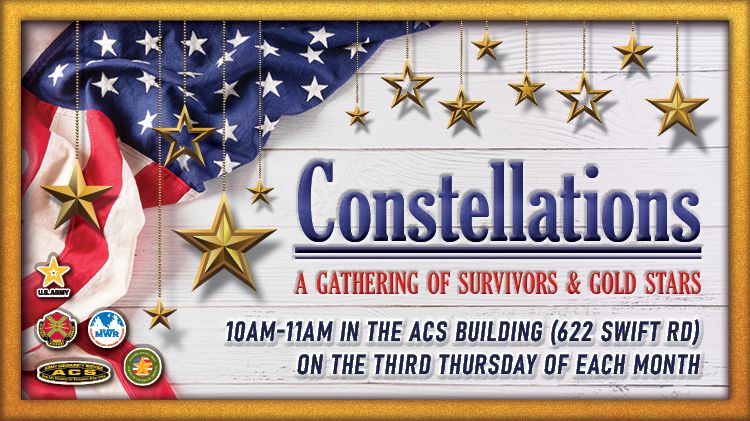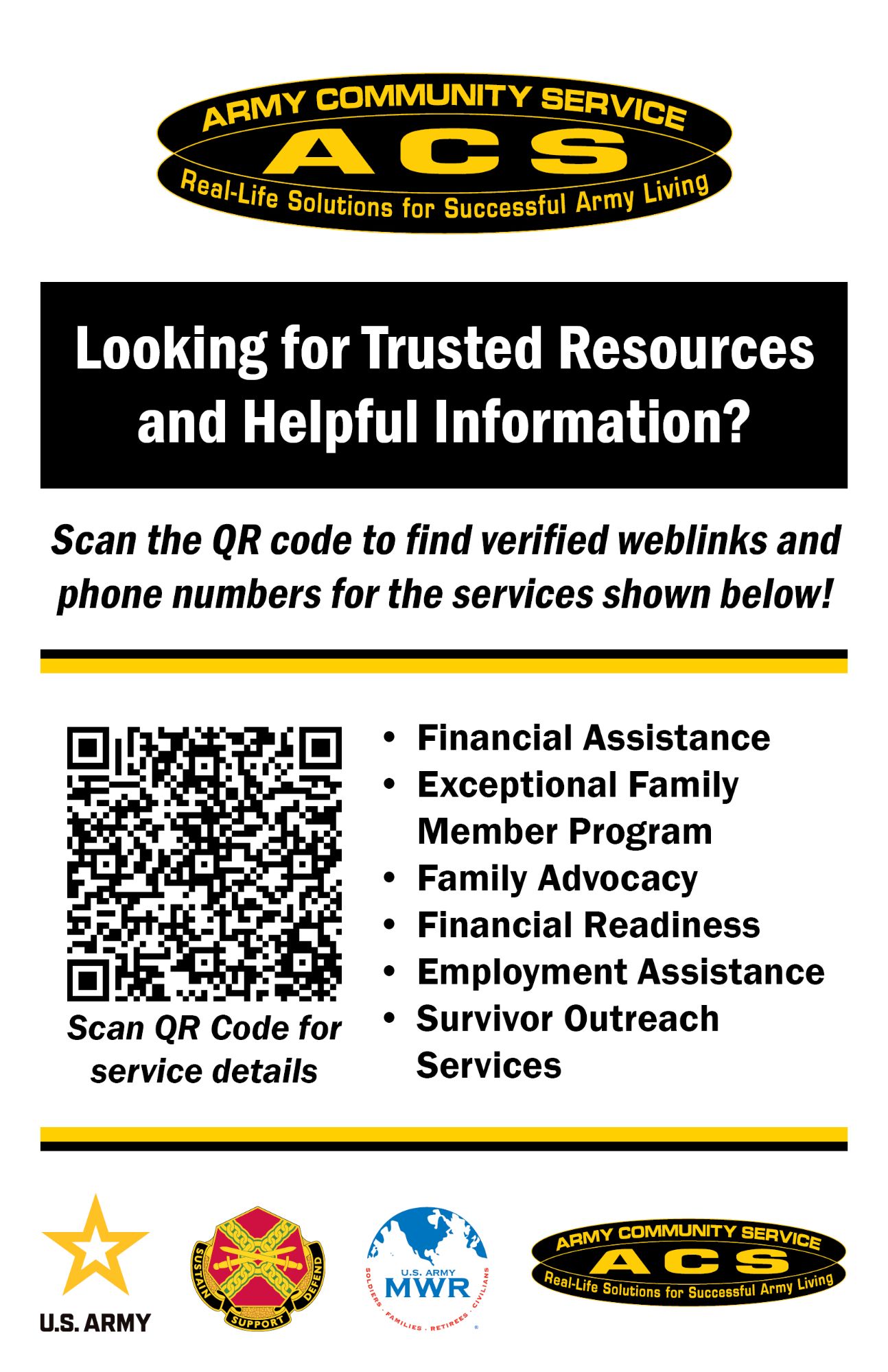- Army Emergency Relief (AER)
-
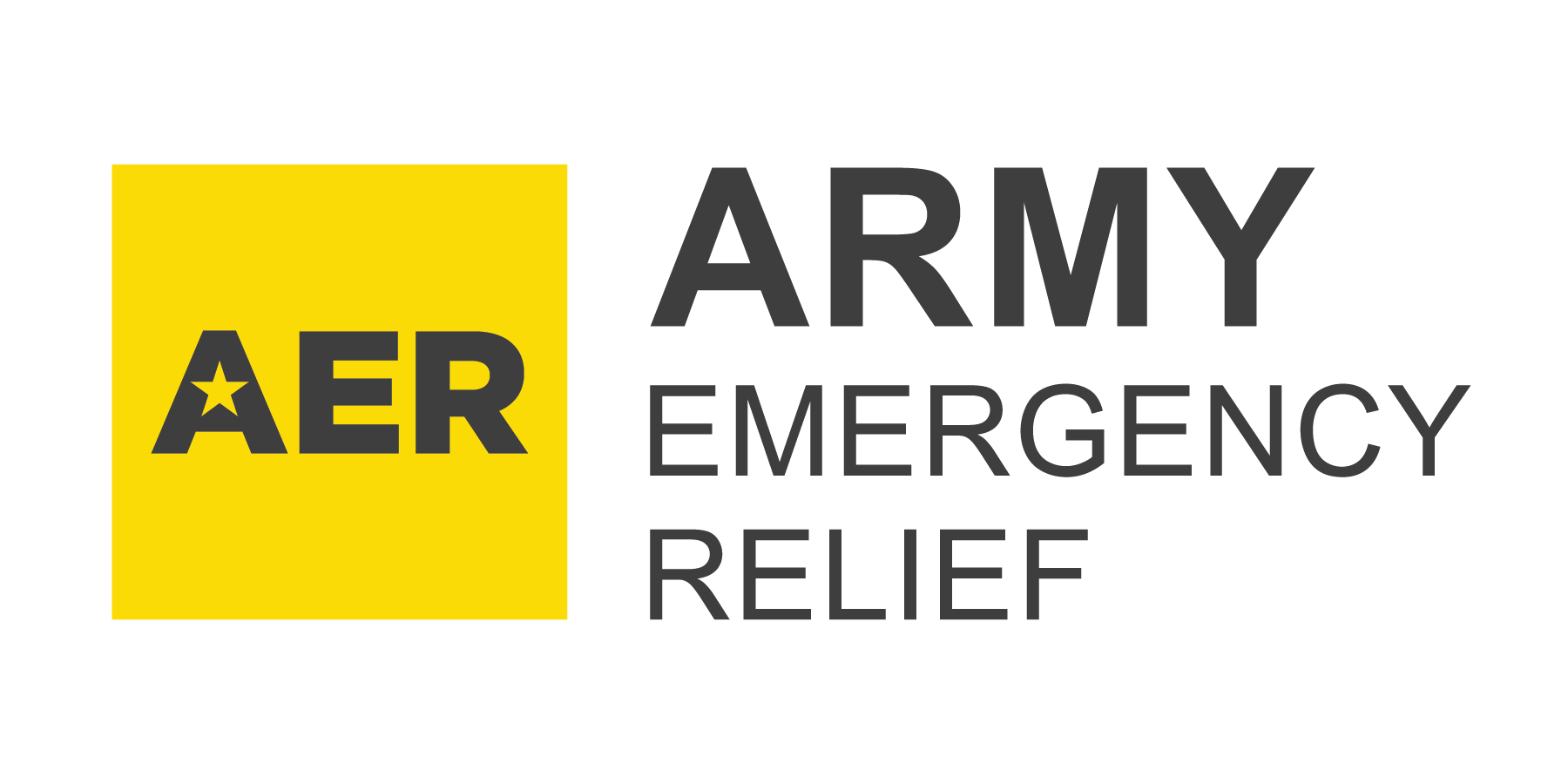
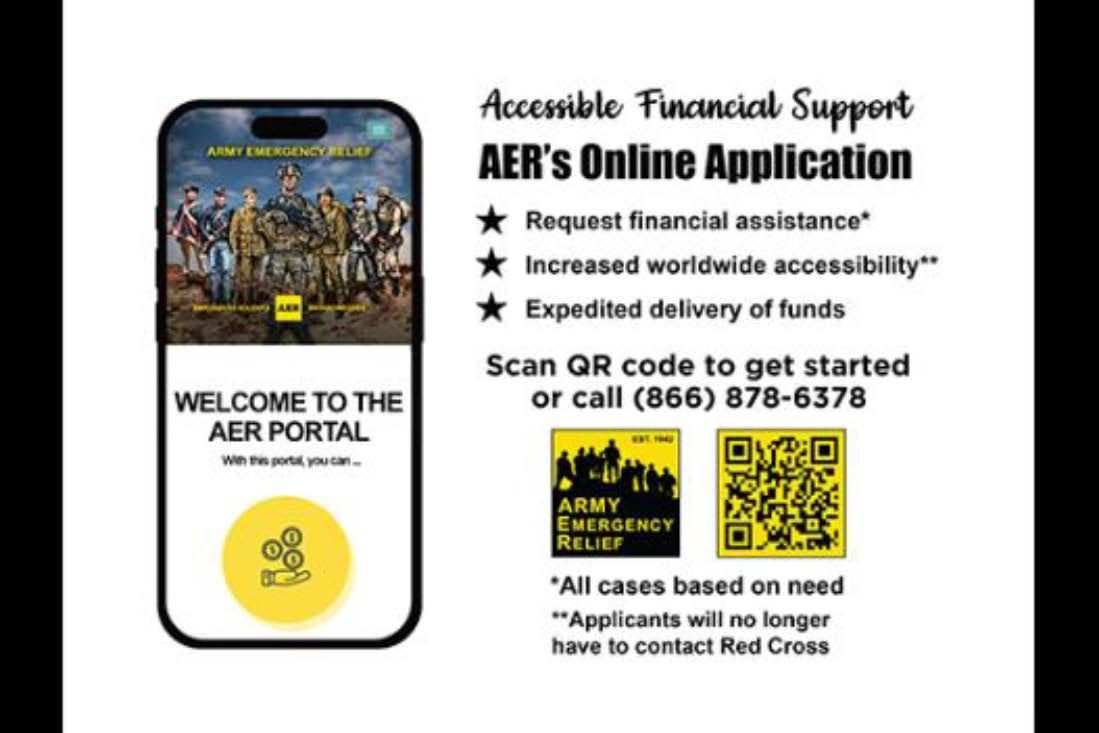
With the launch of the Army Emergency Relief’s 24/7 online assistance application module, AER now offers an online system for requesting financial assistance. Active-Duty Soldiers, Retired Soldiers, and survivors can apply directly and receive an immediate eligibility decision.
•
AER online portal https://www.aerhq.org
•
To apply during weekends and holidays visit https://www.armyemergencyrelief.org
Click “Apply for Assistance” in the upper-right corner to begin your application.
•
For time-sensitive Emergency Travel assistance (travel within 12 hours), or help using the portal, contact soldierportalhelp@aerhq.org
•
Tel: 866-878-6378Army Emergency Relief Overview
Army Emergency Relief (AER) is a private non-profit organization established to assist Soldiers and their Family members in emergency financial situations due to no fault of their own. Financial assistance is given in the form of an interest-free loan, grant, or combination of the two. Loans are repaid by an allotment.
If the need for emergency financial assistance visit https://www.armyemergencyrelief.org/
Education Programs
AER’s Education Program is a secondary mission to help Army Families with the costs of education. The three separate scholarship programs are:
Stateside Spouse Education Assistance Program- Applicant must be the Spouse or widow(er) of an active duty or retired Soldier and reside in the United States.
- Stateside applicants must be full time students.
- First undergraduate degrees only.
- Active duty military personnel are not eligible.
AER Resources and Forms
View all forms. - Employment Readiness Program (ERP)
-

Operated through Army Community Service (ACS) centers, helps Soldiers, Spouses, surviving Spouses, DoD Civilians, and Family members gain the competitive edge needed for employment by providing employment information in the areas of job search skills, education, training, transition, and volunteer opportunities.
- Exceptional Family Member Program (EFMP)
-
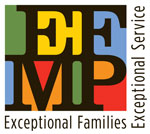

The Exceptional Family Member Program (EFMP) provides comprehensive support to Family members with special needs. EFMP uses an in-depth approach to coordinate military and civilian community, educational, medical, housing, and personnel services to help Soldiers and their Families with special needs.
An Exceptional Family Member is Family member with any physical, emotional, developmental, or intellectual disorder that requires special treatment, therapy, education, training, or counseling, and meets the eligibility criteria.
If you’re eligible for EFMP services, Family members must be screened and enrolled when they accompany authorized Soldiers on OCONUS assignments. Screenings include medical records review for all Family members and developmental screening for all children aged 72 months and younger.
What is the Exceptional Family Member Program?
The EFMP is a mandatory enrollment program that works with other military and civilian agencies to provide comprehensive and coordinated medical, educational, housing, community support and personnel services to Families with special needs.Who must enroll in the program?
The following Soldiers with Exceptional Family Members must enroll in the program:- Active Duty Army
- U.S. Army Reserve (USAR) Soldiers in the USAR-Active Guard Reserve (AGR) program and other USAR Soldiers on active duty exceeding 30 days.
- Army National Guard personnel serving under authority of Title 10, United States Code and Title 32, United States Code. Department of the Army civilian employees do not enroll in the program. However, they must identify Family members with special education and medically related service needs each time they process for an assignment to a location outside of the United States where Family member travel is authorized at Government expense.
How does a soldier enroll in the program?
The Soldier contacts the nearest medical treatment facility EFMP point of contact to begin the assessment process and to obtain the enrollment forms: DD Form 2792 (Medical),
DD Form 2792-1 (Special Education). Once the forms are completed, they are forwarded to the appropriate regional medical center for coding and on to Army personnel agencies who enroll the Soldier into the program. At West Point, once the EFMP enrollment forms are completed, the Family can call the Keller Army Community Hospital EFMP Coordinator at +1(315)774-8646 to schedule an appointment for initial enrollment review or for an update review. After the review is complete, the paperwork is forwarded to Walter Reed Army Medical Center for coding and processing.
If accessing PDF from government computer, "right click, save as")Does enrollment have any impact on the soldiers career?
Enrollment in EFMP does not adversely affect selection for promotion, schools, or assignment. Information concerning enrollment in EFMP or any of the data used in the program is not made available to selection boards.What are the benefits of enrollment in the program?
Enrollment allows assignment managers at Army personnel agencies to consider the documented medical and special education needs of Exceptional Family Members in the assignment process. When possible, Soldiers are assigned to an area where the medical and special education needs of the Exceptional Family Member can be met. This will depend on the valid personnel requirement for the Soldier’s grade, specialty and eligibility for the tour. All Soldiers are still eligible for worldwide assignments.Are special education needs considered in military personnel assignments?
Special education needs are only considered in assignments outside the United States. Assignments within the United States are not based on the educational needs of children. Every local school system must obey public laws regarding the provision of special education.Rights and Responsibilities
KNOW YOUR RIGHTS!Public Law 90-480, Architectural Barriers Acts of 1968
Requires that certain Federally owned, leased or funded buildings and facilities be accessible to individuals with physical disabilities.Public Law 93-112, The Rehabilitation Act of 1973
Addresses discrimination against individuals with disabilities
Section 501: Employment of Handicapped
Section 502: Architectural and Transportation Compliance
Section 503: Employment Under Federal contracts
Section 504: Non-Discrimination Under Federal Grants
“No otherwise qualified handicapped individual in the United States shall, solely by any reason of his (or her) handicap, be excluded from the participation in, be denied the benefits of, or be subjected to discrimination under any program or activity receiving Federal financial assistance”Public Law 94-142, The Education for all Handicapped Children Act
Made it possible for states and localities to receive Federal funds to assist in the education of children with disabilities. States must provide: A free and appropriate education in the least restrictive environment; an individualized education program (IEP) with existence of due process and parent participation.Public Law 95-561, Defense Dependents’ Education Act
DoDDS is required to provide programs designed to meet the needs of eligible students in locations outside of the United States.Public Law 98-372, The Handicapped Children’s Protection Act of 1976
This law provides for reasonable attorney fees and costs for parents who prevail in administrative hearings or courts.Public Law 98-524, The Vocational Act of 1984
This is particularly important because it requires that vocational education be provided for students with disabilities.Public Law 98-410, Temporary Child Care for Handicapped Children and Crisis Nurseries Act of 1986
This law includes provision to fund temporary child care (e.g. respite care) for children who have a disability or chronic illness and crisis nurseries for children at risk of abuse or neglect.Public Law 99-380, The Family Education Rights and Privacy Act of 1974
This law gives parents of students under the age of 18, and students age 18 and over, the right to examine records kept in the student’s personal file.Public Law 101-336, The American with Disabilities Act (ADA) of 1990
Guarantees equal opportunity for individuals with disabilities in employment, public accommodation, transportation, state and local government services and telecommunications. It is the most significant Federal law assuring the full civil rights of all individuals with disabilities.Summary of Parents’ Rights
- You must be notified in writing before the school recommends or takes any action to change your child’s school program.
- You must give permission in writing to the school before it can rest your child to determine special education services.
- You must be allowed to examine and make copies of your child’s school records.
- Schools must provide you with a due process hearing at any point you feel your rights have been violated.
- You have the right to appeal to the state department of education and state level courts.
- You have a right to be reimbursed if they prevail.
Parent Responsibilities
- Be aware of all rights and resources.
- A review is required as the EFM condition changes or at least every three years, whichever comes first.
- Hand carry all medical records, Form 5888 and IEP’s when PCSing
- Family Advocacy Program (FAP)
-
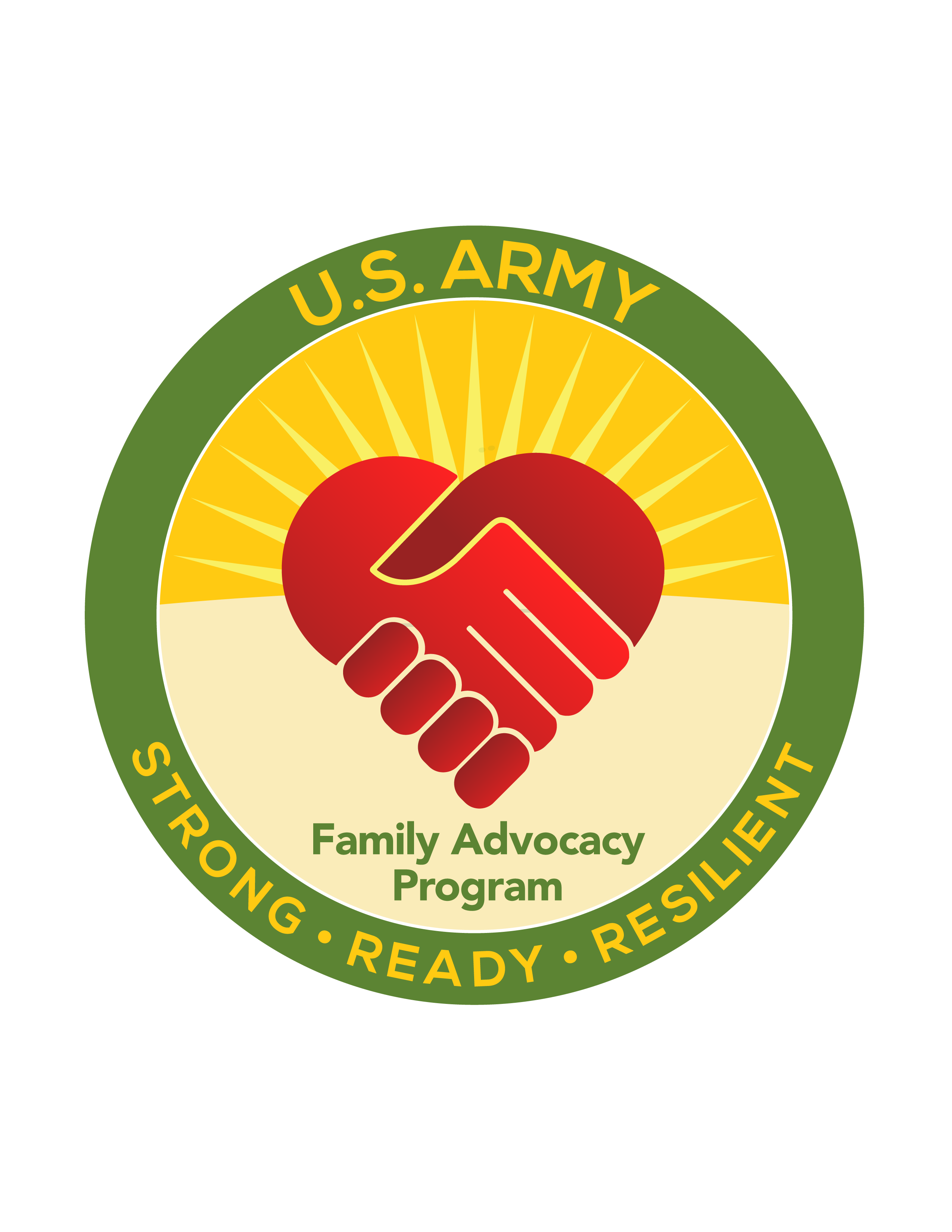
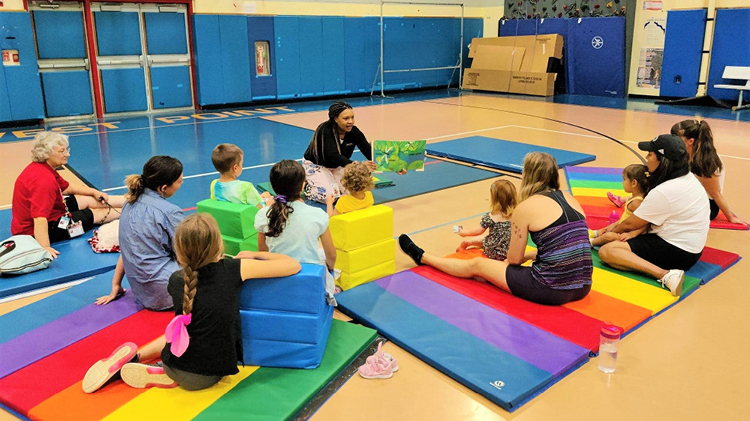
The goal of the West Point Family Advocacy Program is to prevent Family violence by providing a variety of services designed to strengthen Army Families. Family Advocacy offers educational classes and other learning experiences.
If you suspect an incident of child abuse on West Point, call the Military Police (MP) Desk, at (845) 938-3333 and the New York State Child Abuse Hotline at (800) 342-3720.
For domestic violence there are (2) two reporting options:
Restricted. Contact only the Family Advocacy Social Worker at (845) 938-0633 or the Keller Army Community Hospital Emergency Department at 845) 938-4004.
Unrestricted. Contact the MP Desk if on West Point; if off West Point call 911.The FAP Call Center.
Victims can also make a telephonic request for a Victim Advocate by calling the FAP Call Center at (855) 827-0400. That number is available 24/7. The call center will take calls for individuals interested in services from the Victim Advocate or to make a Restricted report of abuse. The Call Center also has telephone numbers for all available resources on and off post.FAP Life Skills Program
All Life Skills Programs are currently offered on an individual basis. Each program consists of 4-6 sessions of 1-2 hours each, located at the Army Community Service Building (Bldg 622). All Sessions are free of charge. For more info and to register, contact the FAP Manager at (845) 938-0633/4621.
Available Life Skills Classes:
Parenting Class
Learn how to balance discipline with affection, minimize parent/child tension, reduce problem behaviors, and determine the difference between discipline and punishment. Plus, learn about blended families, childhood developmental landmarks, parenting teens, and more.
Couples Communication Class
Learn the essentials of a Healthy Relationship, including the Five Love Languages, Effective Communication, Conflict Resolution, and how to comfortably discuss financial issues as a couple.
Stress Management Class
De-stress your life by learning the origins of stress, the different types of stress, the emotional and physical effects of stress, and daily steps to minimize the impact of stress on your life, including different relaxation techniques (also offered to Units on the Installation).
Anger Management Class
Learn how to recognize what “normal” anger is and how to healthily express it, to identify what triggers anger or provokes you, and learn anger management techniques and coping skills.
Earn a certificate after completing all four classes in the series.
Helpful Links
- Financial Readiness Program (FRP)
-


Financial Readiness Program is committed to providing service members with the necessary information and tools needed for financial success. One-on-one appointments are scheduled to meet individual concerns. A course of action is developed to pay-off debt and stay out debt. Goals are set to establish a savings and investment plan for retirement and/or children’s education. Unit trainings are also offered upon request, encompassing a blend of financial topics facing Active-Duty Service Members today. The presentation delivers information on the warning signs of too much debt, corrective actions, proactive behaviors, financial literacy, and a plan for a comfortable financial future.
For more information on a one-on-one appointment, or to set up a unit workshop, please call (520) 725-3559.
The program offers the following workshops and life learning skills:
- The 8-hour mandatory Personal Financial Readiness Training for first-term soldiers
- Budget development & record keeping
- Debt Management
- Retirement Planning
- Preparing for Tax Season
- Consumer rights and obligations
- Credit Counseling
- Individual budget and money management counseling
- Information, Referral & Follow Up Program (I&R)
-

The Information, Referral & Follow Up Program provides information about Army Community Service (ACS) programs as well as numerous installation and community resources. We offer information counseling to determine customer needs and refer them to the appropriate ACS service or other resources. We follow-up after the referral to ensure that our clients receive quality services. We also prepare and maintain a comprehensive Information and Resource databank. Information, Referral & Follow Up is your one-stop shop for information on West Point and the surrounding communities.
Helpful Links:
- Military & Family Life Counselor (MFLC)
-

MFLC Mission
The Military and Family Life Counseling program supports service members and their families with confidential non-medical counseling where they are stationed. Non-medical counseling can assist individuals in addressing issues such as stress management, adjustment difficulties, parenting, grief, or loss, and also help them improve their relationships at home and work.
Trained to work with the military community, MFLCs deliver valuable face-to-face and telehealth counseling services. They can also provide group support with briefings and topic-specific presentations to the military community. Referrals to resources both on and off the installation can also be given by the MFLC. Appointments are preferred, but walk-ins may also be available.
To support military Families and their unique challenges, the MFLC Program offers:- Short-term, non-medical counseling services at no cost.
- Education to help military service members and their Families understand the impact of deployments, separations, and others stressors related to the military lifestyle.
- Augmentation to existing military support services.
- Flexible meeting times and locations, either on or off the Installation.
- Individual, couples, Families, & group session covering topics: anger management, relationship issues, coping skills, anxiety, relocation adjustment, & more.
- Free, confidential counseling and no written records are kept.
- Relocation Readiness Program (RRP)
-
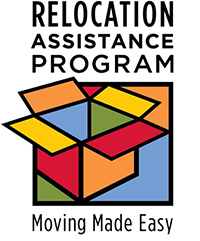

Welcome to West Point! You are in for one of the most memorable assignments of your military career. ACS is happy to be a part of getting your time here at West Point off to a great start.
In order to help facilitate a flawless integration into the community, ACS provides an Inprocessing Brief to all newly arriving military personnel. Attendance at this brief is a requirement for all military personnel. Spouses and Family members are encouraged to attend as the information presented can support their transition to the area.Even if the Soldier and Family member have to attend at separate times, please take advantage of the wealth of information being offered. Times and days of briefs change so please note the available times notated on the Inprocessing Checklist provided to the Service Member upon signing in to post.
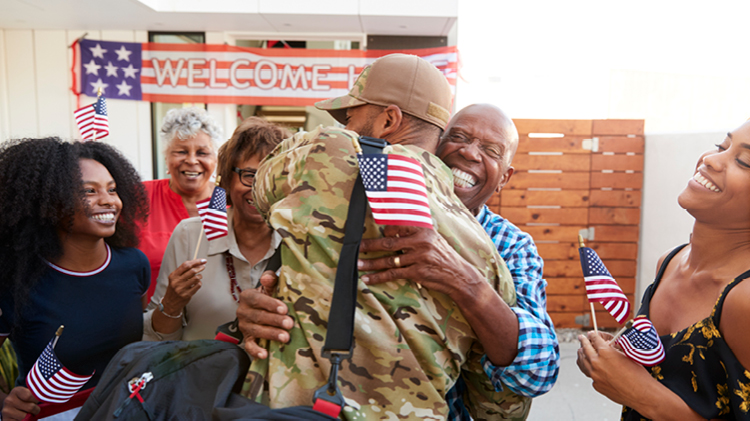
Inbound Services
In-Processing Brief
In-processing briefs are normally conducted four times per week during the months of June, July and August on Mondays and Tuesdays at 1pm and on Wednesdays and Thursdays at 9am in order to better accommodate Soldiers arriving during the busy summer months. Outside of the summer months, In-processing Briefs are held on Tuesdays at 1pm and Thursday at 9am. At this In-processing Brief, ACS services are reviewed, and the Soldier’s current status and condition are discussed. A welcome packet and FMWR Guidebook are available if you have not yet received one.
Reentry Briefs
This brief is offered to all Soldiers and Family members who are returning from an overseas assignment or deployment. It addresses the logistical, financial and psychological adjustment that must often be made when returning from an overseas tour. Soldiers who have recently re-deployed or are returning from an OCONUS location are advised to attend this brief. Please let a member of our Relocation Assistance Program know if you would like to attend this briefing.For additional information on West Point including housing options, check-in procedures and schooling information, please visit: MilitaryINSTALLATIONS.
Outbound Services
Plan Your Own Move
MilitaryINSTALLATIONS and Plan My Move, are two new helpful features from MilitaryOneSource to provide you with the tools to successfully plan your next move.
MilitaryINSTALLATIONS provides telephone numbers, directions, installation overviews, local weather programs and other helpful services on more than 250 military installations worldwide.
MilitaryOneSource is provided by the Department of Defense at no cost to Active Duty, Guard and Reserve (regardless of activation status) and their Families. It is a virtual extension of installation services. Visit MilitaryOneSource today or call +1 (800)342-9647.
"Military Youth on the Move” provides information and advice on moving with youth. Moving can be especially difficult on children, particularly teenagers. Help prepare them for this experience by referring them to this link. With preparation, knowledge and understanding, our military children can become resilient and self sufficient and make their next military move a great one.Lending Closet
The ACS Lending Closet provides basic housekeeping items on free temporary loans to incoming and outgoing Families and in other cases as appropriate. Items include kitchen kits, toasters, coffee-pots, microwaves, tables, chairs, irons & ironing boards, and more. Initially, these items are loaned out for 30 days. If additional time is required, requests for extensions are granted in 30-day increments. Cots, linens, and infant/toddler related items are not provided.
Relocation Counseling
Relocation Counseling is provided in the Relocation Readiness office to help devise a relocation plan for your PCS move. Information and resource materials, which include, Plan My Move, Relocation Website Booklets, and Installation PCS-TDY Guides are provided to assist you during the relocation process and to answer your questions. Counseling also includes assessing the Soldier’s individual or Family needs and particular relocation circumstances. Whether the Soldier and/or Family member needs to vent or discuss the current situation for stress relief, or whether more extensive discussion is needed on a wide array of topics, from schools, to housing to jobs, extended counseling on these and other topics is available from ACS Relocation Readiness. Appointments may be made by calling (520) 717-9823.
Overseas Orientation Briefing
This briefing is mandatory for Soldiers moving overseas. Information provided includes: PCS process and procedures, financial entitlements, shipping household goods, port calls, family travel, legal assistance for claims and shipment of POV and pets. Location specific information is also provided.ACS is providing these briefings virtually and in person. Please call (520) 717-9823 for more information.
Hearts Apart (Formerly “Waiting Families”)
Hearts Apart is a support group and a forum for Families of Soldiers who are deployed, on extended TDY, or on unaccompanied tours. Information is provided to update Families about what's happening on West Point and in the surrounding community.Multicultural Services
Citizenship Assistance
The Relocation Readiness Program is unable to serve as a liaison between the member and the U.S. Citizenship Immigration Service (CIS), due to legal restrictions. We will assist members with getting connected with USMA Legal Assistance, who is qualified to advise and assist in the application process.Please call (520) 717-9823 for assistance.
Additional Resource: USCIS.gov 1-877-247-4645
- Survivor Outreach Services (SOS)
-
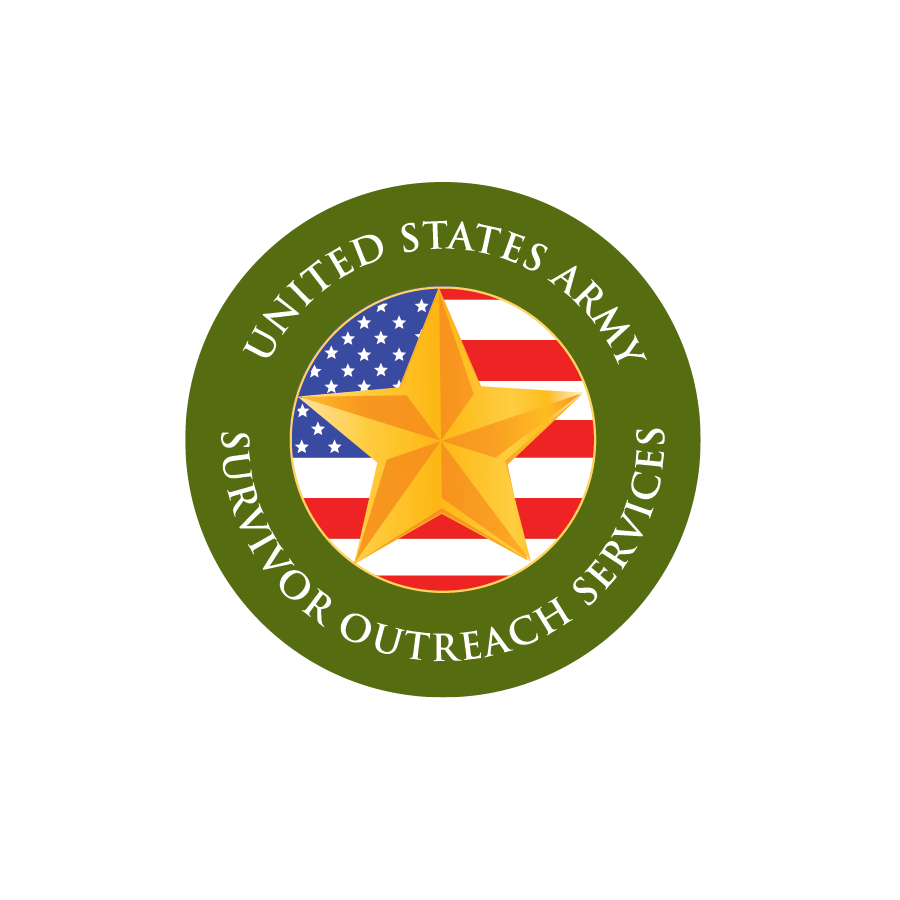

The Survivor Outreach Services program (SOS) provides emotional support, education on benefits, and advocacy on issues facing surviving Military Families. This program delivers on the Army’s commitment to Families of the Fallen by connecting you with people and services that can help you throughout the grieving process. Many times after a loss of a loved one, there are unresolved issues or questions that may surface months or years later. Survivor Outreach Services can help you manage life’s transition and milestones.
SOS provides support and standardized services to Active, National Guard and Reserve Families of the Fallen. It offers a holistic and multi-agency approach to delivering services by providing access at garrisons and communities closest to where Families live. SOS Professionals provide individualized support and attention to Survivors across the Nation.
Financial Counselors provide assistance to Surviving Families through investment and estate planning education.
Support Coordinators function as the long term support personnel for Survivors, facilitating support groups, providing life skills education, and connecting Survivors with counseling resources. These Coordinators work closely with Benefits Coordinators, Casualty Assistance Officers, and other agencies to ensure Survivors receive their necessary services.
For more information, visit www.sos.army.mil or contact the local West Point Survivor Outreach Services Coordinator at (520) 717-9729.
- Victim Advocacy Program (VAP)
-

The Victim Advocacy Program (VAP) provides emergency and follow-up support services to adult victims of domestic abuse. Advocacy services are available to Service members, their current or former spouses, an individual with whom the Service member shares a child, and significant others of Service members who live together. Our services are available twenty-four hours a day, seven days a week.
Our trained professionals are here for crisis response, information on reporting options, medical treatment options, law enforcement’s response, emergency services, safety planning, obtaining military and civilian protective orders, and accompaniment to medical forensic exams and medical appointments, as well as accompaniment to court for orders of protection hearings and trials. Advocates work closely with their civilian counterparts and ensure a personal and smooth transition for victims who do not qualify for ongoing advocacy services within the military community.
If you need help or want more information, contact the Victim Advocacy Program Manager at your local Army Community Service Center at +1 (845)938-5658.
Reporting Options
The Army is fully committed to ensuring victims of domestic abuse are protected; treated with dignity and respect; and provided support, advocacy and care. The Army strongly supports effective command awareness and prevention programs, and holding offenders accountable.
There are two types of reporting options: Restricted Reporting and Unrestricted Reporting. Personnel should report all suspected cases of domestic abuse promptly, which quickly activates victim services and accountability actions. However, we understand things might not always work that way. Victims might need medical attention or victim services without command or a law enforcement response. Therefore, the Army has implemented a Restricted Reporting Option for victims to confidentially disclose allegations of abuse and receive needed medical treatment and services.
Restricted Reporting
Allows someone who meets VAP criteria and who is experiencing violence in his/her relationship to confidentially disclose the abuse to a Victim Advocate, a Victim Advocate Supervisor, or a Healthcare Provider. When an individual chooses a restricted report, law enforcement is not involved and there is no investigation of the abuse. In addition, the Soldier’s Command is not notified of the abuse and is unable to offer assistance and protection.
The restricted reporting option allows an individual to receive medical treatment, advocacy services and clinical and pastoral counseling. This option allows one to receive needed services, control the release of his/her personal information, and time to consider his/her options.
Under this reporting option, the offender is not held accountable and the abuse may continue. If an assessment reveals a high risk for future injury, a restricted report may not be granted.
Unrestricted Reporting
Victims of domestic abuse who want to pursue an official investigation of an incident should report the abuse to law enforcement, or the alleged offender’s Commander. The unrestricted reporting option provides a victim with the widest array of services available including but not limited to command involvement, law enforcement involvement, medical treatment, advocacy services, and counseling services.
Not all incidents of domestic abuse are the same, and each person who experiences domestic abuse handles the situation differently.
Command Response
Commanders play an integral part in ensuring the safety, health, and well being of our Army Families. Commanders who learn of an incident of domestic abuse are required to notify law enforcement.
Victim’s Rights
- The right to be treated with fairness and with respect for your dignity and privacy.
- The right to be reasonably protected from the accused offender.
- The right to be notified of court proceedings.
- The right to be present at all public court proceedings related to the offense, unless the court determines that your testimony would be materially affected if you, as the victim, heard other testimony at trial.
- The right to confer with the attorney for the government in the case; the right to available restitution; the right to information about the conviction, sentencing, imprisonment, and release of the offender.
Safety Planning
A violent relationship puts you and your children at risk for injury and even death. Developing a safety plan tailored to meet the needs of your family will enable you get out of a potentially dangerous situation. If your children are old enough, mature enough, or even responsible enough to assist you during a violent or potentially violent episode of domestic abuse, you may consider including them in your plan to keep everyone safe. A good safety plan considers which steps to take if you choose to stay in the relationship or if you choose to leave.
Here are some tips during the explosive phase of domestic abuse:
- Move to a room with easy access to an exit. Don't go to the kitchen, bathroom or near possible weapons.
- Know the quickest route out of your home. Practice escaping that way.
- Know the quickest route out of your workplace. Practice escaping that way. Domestic violence does not just occur in your home.
- Pack a bag and have it ready. Keep it hidden but make it easy to grab quickly.
- Tell your neighbors about your abuse and ask them to call the police when they hear a disturbance.
- Have a code word to use with your kids, family and friends. They will know to call the police and get you help.
- Know where you are going to go, if you ever have to leave.
- Use your instincts.
- You have the right to protect yourself and your children.
Develop a Safety Plan
Safety Plan (English)
Safety Plan (Spanish)- Plan de seguridad (español)
Protection Orders
Military Protection Orders (MPO)
Unit Commanders may issue a Military Protective Order (MPO) to ensure the safety of service members, family members, and other individuals from the threat of domestic violence. An MPO is a written lawful order issued by a commander that orders a Soldier to avoid contact with his or her spouse or children. The commander should provide a written copy of the order within 24 hours of its issuance to the protected person, the Military Police and civilian law enforcement. An individual should report violations of the MPO to law enforcement.Civilian Protection Orders (CPO)
A Civilian Order of Protection is an order signed by a Judge that directs an individual to stop abusing, stalking, harassing and/or committing acts of sexual violence against an individual. An individual may file a CPO against current or former spouse, someone that an individual shares a child in common, an individual with whom you have shared a residence with, someone related to you by blood or marriage or someone with whom you have dated or had intimate relations.
National Resources
- United States Department of Justice Office on Violence Against Women
- National Center on Domestic and Sexual Violence
- Stalking Resource Center
- Statewide directory for laws, courts, emergency shelters, orders of protection
- Battered Women's Justice Project
- The Family Violence Prevention Fund
- Women's Justice Center– Also is Spanish
- Mind, Body, Spirit Empowered - Materials translated into many languages
- Marriage and Equality – Materials translated into many languages
Plan your own family adventure!
The mission of ACS is to facilitate the commander's ability to provide comprehensive, standardized, coordinated and responsive services that support Soldiers, Department of the Army civilians, and Families regardless of geographical location and to maximize technology and resources, eliminate duplication in service delivery and measure service effectiveness.
